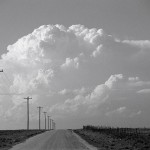
Laissez faire is a social system based upon private ownership of the means of production and the preeminence of the individual over the group.
The word capitalism was popularized by Karl Marx, in the 1850’s. Marx used it to denounce private ownership of the means of production and the autonomous workings of the free market.
Many people use “capitalism” to denote laissez faire, but the word capitalism has become a laden and loaded word, easily misunderstood with its opposite: crony capitalism.
Laissez faire is an entire political theory — not, as is sometimes supposed, merely economic. In this regard — and only in this regard — it is akin to communism.
The exclusively economic component of laissez-faire may be described as the right to life, liberty, and property applied to commerce and industry.
Pure laissez-faire, which does not exist now and has never existed fully, means that government removes itself from all commerce (and that includes healthcare), in the same way that government removes itself from your bedroom.
In addition to early America, there is at least one other society that has come close to laissez faire:
After the War Hong Kong had no minimum wage, low and simple taxes, zero tariffs, zero capital controls, and a stable legal environment. Postwar Hong Kong went as far with economic laissez faire as any other country in history. This resulted in economic development that benefited virtually all the people of Hong Kong. Living standards increased substantially even for the poorest people in Hong Kong (Stefan Karlsson, Inflation Leads to Protectionism, 2004).
Laissez faire means that commerce and industry are entirely privatized.
Corporations that receive government subsidies are not capitalistic. They’re the opposite: they’re mercantilistic.
The same is true of small businesses and farms that receive subsidies.
Trade tariffs are not capitalistic but mercantilistic.
Mercantilism is an ancient and more primitive form of socialism. It is socialism before Karl Marx.
Political theory is the theory of government, and government, properly defined, is the body politic that possesses rule over a certain geographic region.
Economics is the science of production and exchange, but production does not just mean agriculture, although that is certainly included.
Productive work is any kind of work geared toward the task of survival — survival in the fully human sense of the word, including, therefore, arts, sports, industry, and so on.
Thus the essential questions of government are these:
Do humans exist by right or by permission? Are we free by nature? If so, why? Are we free to produce, exchange, and exist, or do politicians, elected or not, have authority and jurisdiction over the lives of us — to any degree?
Obviously, there’s only one sane answer to all these questions; for to say that humans do not exist by right is the same as saying humans only exist when someone permits us to. But if that were true, we must then ask: who permits? And why? And who gives these people permission?
Fundamentally, political freedom can be achieved only through recognizing each and every single individual’s right to life.
If, then, you believe that we are each individuated and sovereign, and if you believe that our lives are entirely our own and not the government’s and not another’s, if, in short, you believe “we each have a property in our person,” as John Locke said, then you believe in the inalienable right to life, liberty, and property.
You believe, therefore, in laissez-faire capitalism.

“Capitalism is evil,” says Michael Moore, despite the fact that he doesn’t know what capitalism is. (By capitalism, Moore means bourgeois socialism, which is also known as crony capitalism.)
You STILL fail to understand Marx’s distinction between property and bourgeois property, and in so doing your betray your ignorance. Marx did not mean that you can’t have your pomade and your hair-dryer.
You want capitalism back?
Take it back.
The sixth ammendment.
Write up a teatise on Spooner and the jury.
Freedom is a scary thing………
EJ
http://www.barefootsworld.net/trial01.html
Sorry Michael Moore
As a member of the bourgeoisie I would like to keep all of my property.
No dice.
I love these oversimplified stream of consciousness arguments.